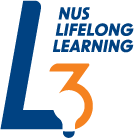Objectives
An Agile software development approach is characterised by iterative and incremental development to achieve significant productivity benefits, such as faster time-to-market and cost & time savings.The Agile approach's benefits to the organisation are:Increased ability to plan and deliver changes based on business prioritiesGreater responsiveness with the ability to respond to changing priorities or urgent updatesHigher visibility of progress to all stakeholdersThe confidence that they are building the right solutions by allowing them to explore new ideas and test them quickly with significantly less effort and costA delivery process that significantly lowers the risk of delivery, compared to traditional 'big bang' releases at the end of a long projectImproved ability to commit to and meet delivery deadlinesThe ability to deliver new functionalities to their customers faster and with less lead timeA software testing practice that follows the principles of Agile software development is called 'Agile Testing'. An Agile framework, such as Scrum, is an iterative approach for software development, where requirements and designs evolve through collaboration between the customer and self-organising project teams.Agile Testing focuses on identifying and repairing defects when they are detected, rather than waiting for a later stage in the project. By doing so, the product's quality will increase and development costs and efforts will go down. Agile practices, such as daily meetings can help to identify issues and defects early.This three-day course will provide training and testing activities related to Agile projects and on applying tools and techniques to ensure that software products meet the accepted quality level (AQL).


